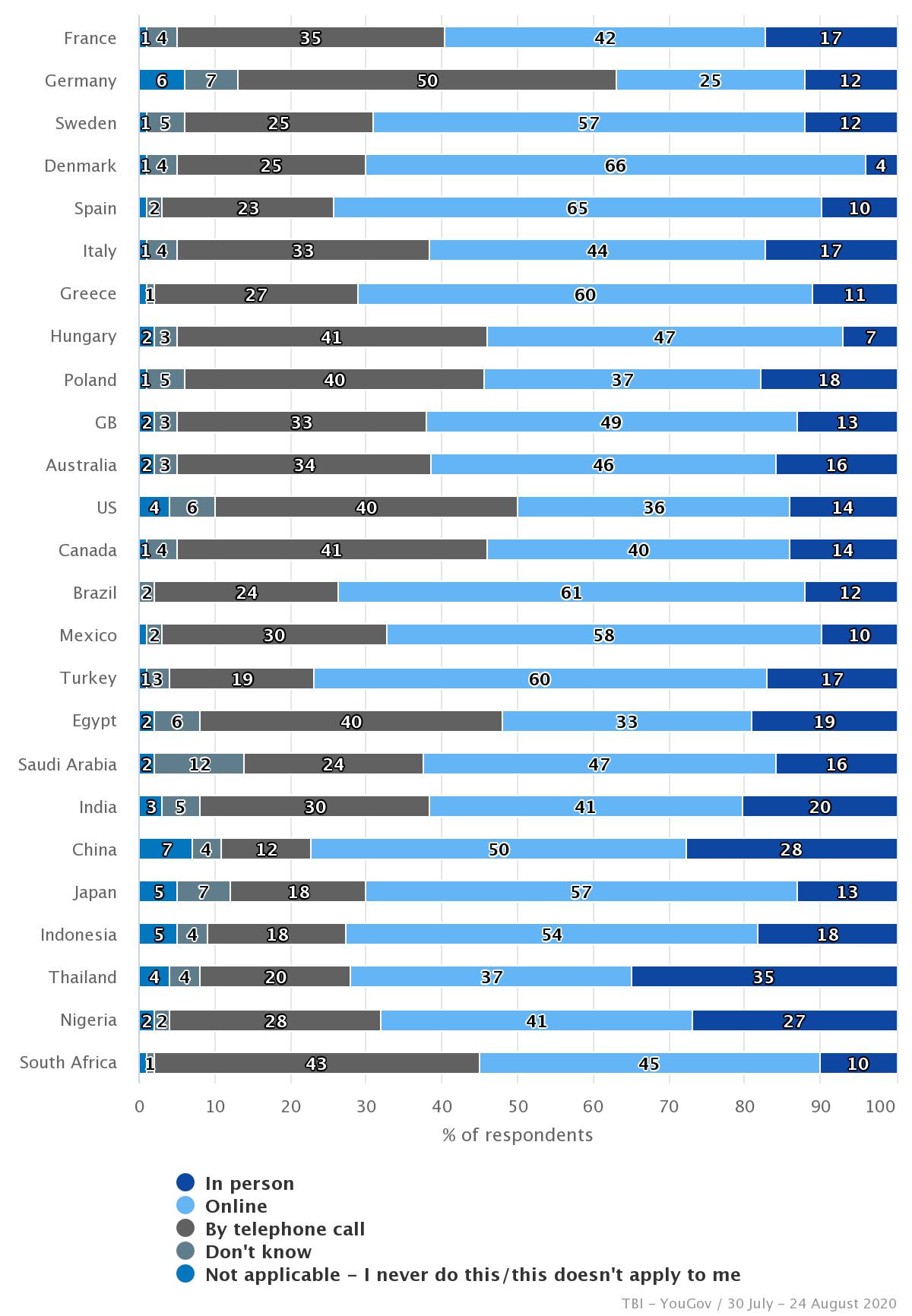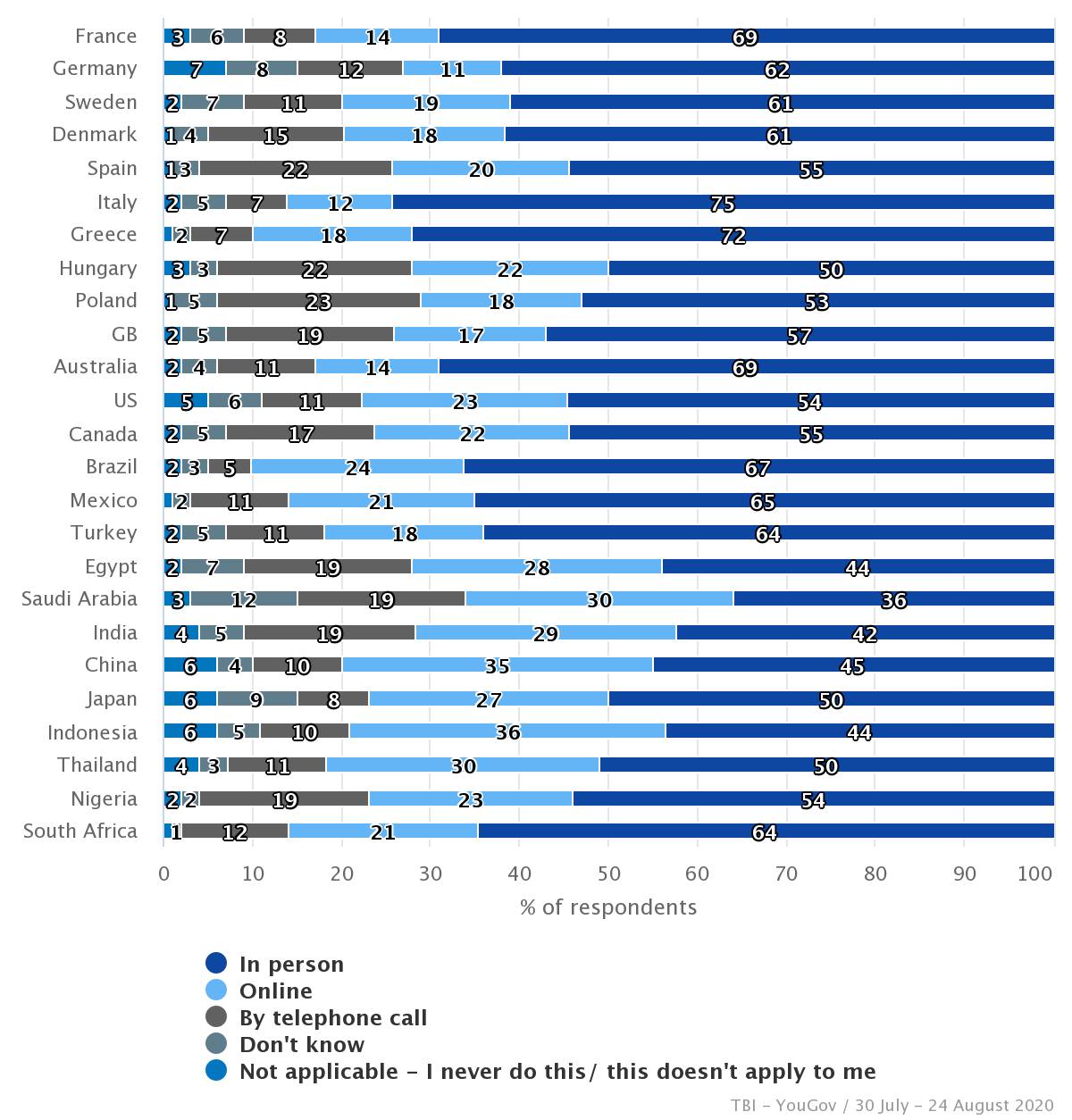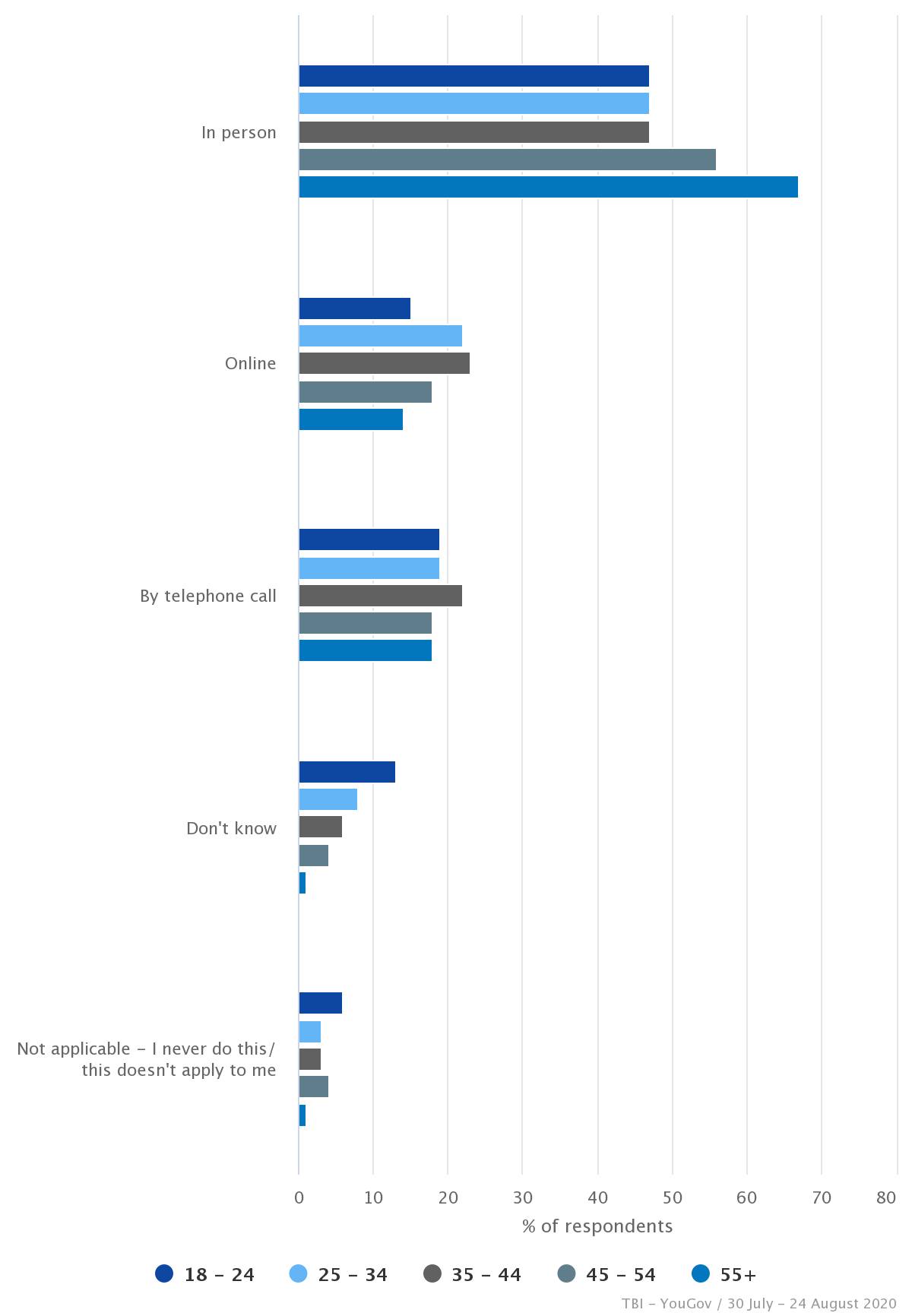The Covid-19 pandemic has forced a greater use of technology across almost every aspect of our lives. This is particularly true in the domain of health care, where more and more doctors have shifted services online to reduce the spread of the virus and to cope with increased pressure.
Recent findings from our YouGov-Cambridge Globalism survey, conducted in 25 countries around the world, show that the public want these trends to continue, to some extent, after the pandemic has been tackled. While people see a positive role for technology in allowing them to more easily book consultations online, thus removing friction in the service, they still value the face-to-face doctor-patient relationship.
In almost all countries surveyed, people displayed a preference for booking doctor appointments online rather than in person or by telephone in the future. However, when asked how they would prefer to have an initial consultation about an unexplained pain in their body in the future, most people said they would rather see a doctor in person than have a telephone call or online appointment.
How people would prefer to book a doctor’s appointment post-pandemic, by country

Question - Now imagine a possible time in the future, when the coronavirus pandemic has been tackled, and life as become more normal again. From that point onwards… How would you prefer to do each of the following activities? Arranging an appointment to see a doctor
Only in five countries out of the 25 surveyed do people show a minor preference for booking a consultation over the phone rather than online or in person (Germany, Poland, the US, Canada and Egypt). In every country surveyed, the most popular response was a preference for in-person consultations. The preference for in-person consultations is relatively higher in European countries such as France (69 per cent), Germany (62 per cent), Italy (75 per cent) and Greece (72 per cent) than Asian countries like China (45 per cent), India (42 per cent) and Indonesia (44 per cent).
How people would prefer to see their doctor post-pandemic, by country

Question - Now imagine a possible time in the future, when the coronavirus pandemic has been tackled, and life has become normal again. From that point onwards…How would you prefer to do each of the following activities? Having an initial consultation with a doctor about an unexplained pain in your body
Views differ slightly among different age groups. For example, in Britain, although all age groups would prefer to book a doctor’s appointment online, perhaps unsurprisingly given their relatively greater exposure to technology, the preference is generally stronger among younger age groups (18 to 24, 25 to 34 and 35 to 44). All age groups would also prefer to have an initial consultation with a doctor in person about an unexplained pain, but the preference to see a doctor in person is stronger among older age groups (55+).
How people would prefer to see their doctor post-pandemic, by age group

Question - Now imagine a possible time in the future, when the coronavirus pandemic has been tackled, and life has become normal again. From that point onwards…How would you prefer to do each of the following activities? Having an initial consultation with a doctor about an unexplained pain in your body
The findings suggest that although people see a positive role for technology to reduce friction in the health care service, they still value the physical doctor-patient relationship.
This is important for system design: In this instance, technology can remove the pain points, freeing up more time for deep and quality care. In these cases, technology becomes a component of the service, not a substitute.
The benefits of digitisation in health care go beyond just booking appointments. Technology can help make health care more preventative, as advances in artificial intelligence can help with diagnosis and real-time health information and wearables can make it easier to monitor patients remotely.
The need for increased use of technology in health care is urgent. For half the world’s population, primary-care doctor visits last less than five minutes. Doctors around the world are also under increasing strain as administrative burdens are increasing. At the extreme end of this is the US system, where it is estimated to cause as much as $90 billion to $140 billion in lost physician time or productivity per year. Increased digitisation can therefore optimise service delivery, so doctors can spend more time with patients, dedicate more resources to patient care and ultimately provide a better service.
To revolutionise medicine so that technology and human care work in tandem will require deep changes to be made across the system. But it provides an opportunity to improve the quality of health care for millions of people around the world and is therefore a grand challenge we should pursue.
Editor’s Note: Some data in charts and text may vary slightly due to rounding. Participants for the survey were selected from an online panel, which should be taken into account in responses to questions about online activities, particularly in countries with low levels of internet access. More information about the research and results can be found here: https://yougov.co.uk/topics/yougov-cambridge/globalism-project